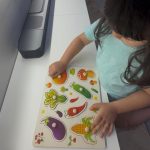Why Do People with Autism Collect Coins?
Many autistic individuals, including those diagnosed with Asperger’s syndrome, show a strong interest in numismatics. Among them, there are many collectors who have been fascinated by collecting various objects since childhood. There are specific reasons why some are particularly drawn to coins, tied to their unique ways of thinking and perceiving the world.
- Special Interests and Deep Focus
Autistic people often explore specific topics in great detail, becoming deeply engaged in them to the exclusion of almost everything else. Coin collecting fits this behavioral model perfectly, as it involves systematization, attention to detail, and in-depth study of many aspects. For example, individuals with Asperger’s may spend years learning the history of coins, the properties of metals they’re made from, and rare items — such research brings them a sense of satisfaction and control. - Predictability and Structure
Numismatics, as a hobby, is defined by clear structure and predictability. Coins have well-defined parameters: year of issue, material, imagery, denomination. For autistic people who seek order, this kind of systematization is comforting. A coin collection becomes a kind of “map,” where each item has its place, reducing anxiety related to uncertainty. - Sensory Appeal
Since many autistic individuals are sensitive to tactile sensations, it’s likely they enjoy the feel of metal objects — their shine, weight, and texture can elicit positive sensory responses. This makes coin collecting not only intellectually stimulating but also physically pleasant, while also helping develop fine motor skills. - Alternative to Social Interaction
Autistic individuals often find it difficult to maintain social relationships. Collecting provides a solitary activity that doesn’t require constant interaction. This hobby can remain a personal pursuit or become a channel for structured, predictable communication with other collectors on online forums or in clubs. - Emotional Regulation
Collecting can help manage anxiety and stress. The process of searching, sorting, and studying coins creates a sense of stability, which is especially valuable for autistic individuals who may struggle with emotional self-regulation.
For autistic people, coin collecting plays a much more significant role than just being a hobby — it becomes a way to perceive the world as structured, to find joy in examining small details that might be overlooked in everyday life, and to find comfort in predictability. Numismatics combines intellectual interest, sensory stimulation, and emotional relief, making it especially appealing.
There are many more positive aspects of this interest, but it’s important to note that the passion for collecting coins in autistic individuals is primarily linked to the presence of the disorder. It causes certain activities to be preferred over others, leading to a narrowed range of interests and perception, as well as a lack of desire or ability to engage in broader conversations.
The Role of Cell Therapy in Addressing Autism
Currently, the only method that offers the greatest chance of overcoming autism and its symptoms quickly and effectively is cell therapy. This innovative technique involves the transplantation of stem cells that stimulate the body’s own regenerative abilities. These cells are taken from the patient (usually from bone marrow under local anesthesia), which eliminates immune rejection since the material is native to the body.
After transplantation, the stem cells transform into specialized cells — the types that make up organs and tissues — and replace those that have been damaged for various reasons with healthy ones. This process results in the normalization of brain and nervous system function, stabilization and predictability of behavior, faster overall development and skill formation, and a reduction (or even complete disappearance) of symptoms. The results can last for many years, and in many cases, for life, significantly increasing the effectiveness of other corrective interventions.
Although cell therapy was once considered experimental, it is now widely recognized and may in the future become the main method for addressing autism and its manifestations. Currently, it is available only at the world’s most advanced clinics, including the Mardaleishvili Medical Center. This center employs highly qualified doctors with extensive successful experience in stem cell transplantation, equipped with the latest-generation medical technology. This allows procedures to be performed with the best possible outcomes. Overall, the level of care matches that of countries with well-developed healthcare systems, while being significantly more affordable for patients. In addition, assistance is available with planning travel and solving logistical issues, including temporary accommodation for the short rehabilitation period.
Cell therapy — a simple and effective way to overcome autism!
Autism Treatment Center Videos
Autism treatment with own stem cells
Cord blood association congress
International Quality Crown
Autism Treatment Reviews
Autism treatment with own stem cells
The story of Alessandro (6 years old)
Autism Patient Testimonial - Stem Cell Treatment
Clients Testimonials

Lidiya — Elina’s mother Read More

Anna – Sasha’s mother Read More

Amirkhon’s father — Tokhir Read More

Dilana’s mother Read More

Irina and Stefan – Ilya’s parents Read More












